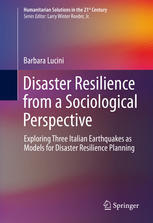

Most ebook files are in PDF format, so you can easily read them using various software such as Foxit Reader or directly on the Google Chrome browser.
Some ebook files are released by publishers in other formats such as .awz, .mobi, .epub, .fb2, etc. You may need to install specific software to read these formats on mobile/PC, such as Calibre.
Please read the tutorial at this link: https://ebookbell.com/faq
We offer FREE conversion to the popular formats you request; however, this may take some time. Therefore, right after payment, please email us, and we will try to provide the service as quickly as possible.
For some exceptional file formats or broken links (if any), please refrain from opening any disputes. Instead, email us first, and we will try to assist within a maximum of 6 hours.
EbookBell Team

0.0
0 reviewsNatural disasters traumatize individuals, disrupt families, and destabilize communities.Surviving these harrowing events calls for courage, tenacity, and resilience. Professional planning requires specific types of knowledge of how people meet and cope with extreme challenges.
Disaster Resilience from a Sociological Perspective examines three major earthquakes occurring in Italy over a fourteen - year period for a well-documented analysis of populations' responses to and recovery from disaster, the social variables involved, and the participation of public agencies. This timely volume reviews sociological definitions and models of disaster, identifying core features of vulnerability and multiple levels of individual and social resilience. The analysis contrasts the structural and supportive roles of Italy's civil protection and civil defense services in emergency planning and management as examples of what the author terms professionalresilience. And testimony from earthquake survivors and volunteers gives voice to the social processes characteristic of disaster. Among the areas covered:
For researchers in disaster preparedness, psychology, and sociology, Disaster Resilience from a Sociological Perspective raises--and addresses--salient questions about people and communities in crisis, and how studying them can improve preparedness in an uncertain future.